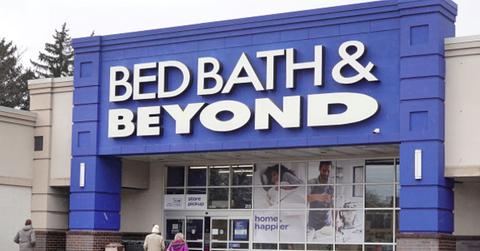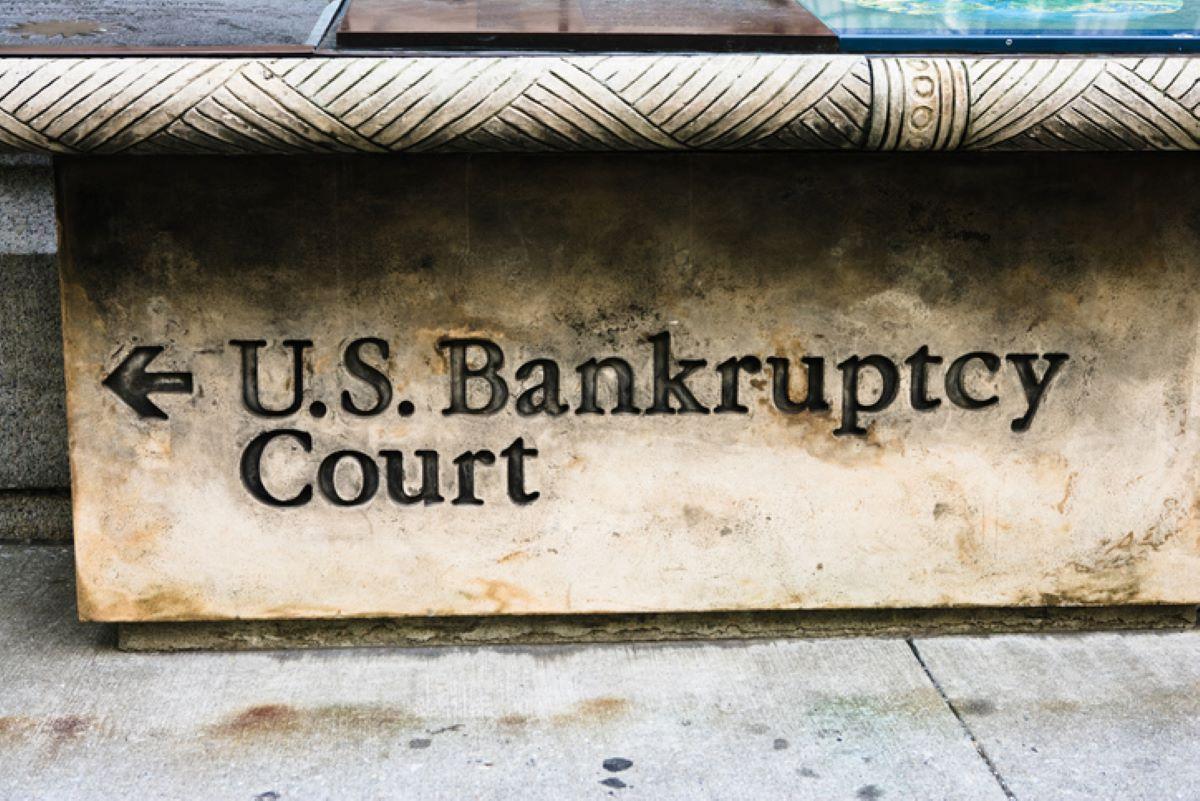A Company Goes Out of Business and Owes You Money — Here's What Happens
When you invest in a company, you hope to profit, but that isn't always the case. So, what happens when they file for bankruptcy and owe you money?
April 26 2023, Published 9:01 a.m. ET

Corporations are filing for bankruptcy at an alarming rate that even retail favs like Bed Bath & Beyond and David's Bridal have filed for Chapter 11 protection. Many bankers and analysts predict an economic downturn that will see many other companies follow in their footsteps.
"Interest rates remain elevated with little reason to suspect they will decline meaningfully by year-end, adding to increased costs for firms," Nick Kraemer, head of ratings performance analytics at S&P Global Ratings, said in a Feb. 16 report.
Usually, any money a company can generate from liquidation and sales goes to creditors and bondholders, so what happens when a company goes out of business and owes you money? Read on to find out.
What happens when a company goes out of business and owes you money?
When a company like Bed, Bath & Beyond files for bankruptcy, the courts will typically send you a notice and a proof-of-claim form that lets you petition for payment.
Courts require creditors to be paid in a certain order depending on the type of debt. Preferred creditors are paid first, including employees and state, local, and federal taxing authorities. Secured debts are next, which is when the creditor has a lien on a specific asset, and then unsecured debts come after that.
Unsecured debts and creditors assume a higher level of risk when providing products or services to a business, and this is where most claimants fall and often only receive a small fraction of what they’re owed.
Once the company files for bankruptcy, they’ll send out a notice to creditors, and this is when you’ll file a proof of claim which is a written statement — including documents, invoices, contracts, and account statements — that will tell the court why the company owes you money.
After you file the claim, you can attend a creditor's meeting to gain more insight into the company's financial state. Once a business files for bankruptcy protection, an automatic stay will take effect, which means you can no longer attempt to collect your money outside of bankruptcy court.
What is company bankruptcy and how can if affect debt collection?
Retailers tend to get the most attention when news outlets make bankruptcy predictions because they're companies we understand and typically shop with. And with brands like Walmart, Macy's, and Foot Locker looking to cut costs and change their business models to meet current shopping trends, we can't help but wonder if they're next.
Let's explore the different types of bankruptcy and how they may impact your attempt at debt collection.
The U.S. Bankruptcy Code has six types of bankruptcy: Chapters 7, 9, 11, 12, 13 and 15.
Chapter 7: Best for LLCs used to liquidate and close a company.
Chapter 9: Provides reorganization of municipalities which includes cities, towns, counties, taxing districts, municipal utilities, and school districts.
Chapter 11: It's for reorganization, usually involving a corporation or partnership. A Chapter 11 debtor usually proposes a plan of reorganization to keep its business alive and pay creditors.
Chapter 12: Adjustment of debts of a family farmer or family fisherman.
Chapter 13: Provides for adjustment of debts of an individual with regular income. Chapter 13 allows a debtor to keep property and pay debts over time, usually three to five years.
Chapter 15: This type of bankruptcy provides effective mechanisms for dealing with insolvency cases involving debtors, assets, claimants, and other parties of interest involving more than one country.
Companies can file for either Chapter 7 or Chapter 11 bankruptcy if they can't pay their debts. Chapter 7 will liquidate assets if they can't repay debts, and Chapter 11 will allow the business to continue to operate under a reorganization plan.
Whether you get the money back you invested depends on the type of bankruptcy and the kind of investment you made, like stocks or bonds. Unfortunately, no matter what type of bankruptcy they use, you'll still get less for your investments.
What are the legal options available to creditors in a bankruptcy case?
All creditors should be heard with regard to the liquidation of the debtor's nonexempt assets in Chapter 7 bankruptcy and with the debtor's repayment plan in Chapter 13. All creditors can also challenge the debtor's rights to a discharge and are entitled to share payment from the bankruptcy estate, but only according to the priority of their claims.
Creditor's rights for secured claims: Secured creditors have rights based on a deed of trust, mortgage, security agreement, or personal property. Those with liens on the property are entitled to receive value equal to the debt or collateral. With Chapter 7, the debtor can redeem the property by buying it back in a lump sum that's the replacement value of the collateral.
For Chapter 13, the debtor must surrender secured collateral to the creditor and pay off debt according to the reorg plan.
Creditor's right for unsecured claims: Unsecured debts like medical or credit card debt are the lowest priority. As an unsecured creditor, you can file a proof of claim, attend the meeting of creditors and file objections to the discharge.
Many unsecured creditors won't be paid in Chapter 7 and may not be entitled to be paid back in Chapter 13, depending on the number of secured debts the bankruptcy has filed.
You can also sue someone who owes you money, keeps forgetting to pay you, or refuses to pay you back. Check out your state's small claims case money limit before considering legal action. Also, this option works best for a civil case and not a national or international bankruptcy filing.


